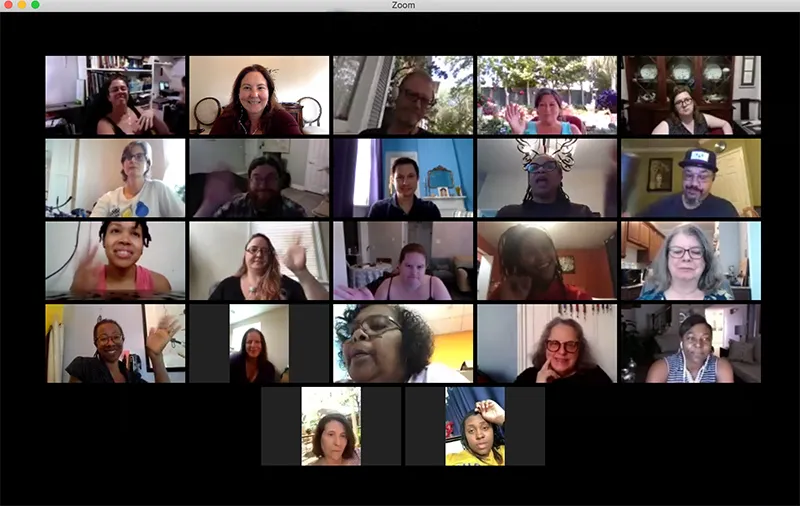
As is the case at so many other institutions worldwide, Tulane’s School of Liberal Arts is confronting unprecedented challenges in the face of the COVID-19 pandemic. But, by listening to and learning from those around us, we are learning important lessons about teaching and community within the changing landscape.
On March 11, Tulane President Mike Fitts announced to students, faculty, and staff that courses would move to online instruction, travel would be limited for research, events and gatherings would be cancelled, and the university would begin staunchly practicing social distancing. In just two weeks, our usual methods of interaction, teaching, and research took a dramatic turn. But during these past few weeks, our faculty, staff, and students have acted quickly to transition into new ways of working, teaching, and learning, continuing to provide and engage in the important presence of higher education.
Together, we have ushered in remote teaching to reach our students through various methods of engagement, created hotspots for faculty and staff working from home, worked with academic leaders for grading adjustments, and used online surveying tools to stay connected with our students. Our school’s programs and departments have also continued to create opportunities to interact with audiences during events that are now occurring virtually. Whether using Zoom, YouTube, Canvas, or PhotoBooth, the liberal arts faculty have found ways to foster learning and leverage their research from a distance.
Aaron Collier, the Ellsworth Woodward Junior Professor of Art, Painting & Drawing, sees the resolute nature of our community through the strength of our students. “Within the first five minutes on day one of my virtual class,” he says, “I knew that the perfect attendance (including a student who had returned home to China) and the ability to see everyone together on screen signaled a gift to be revered. The compositional exercises we remotely preformed together in this Beginning Drawing class were simultaneously the most absurd and important activity to which we could give our Monday afternoons.”
While the road has not always been perfectly smooth during this transition, we remain confident that as we move forward in uncertain times, we will continue to strengthen as a community. “In the Dean’s Office, we knew we had to provide steadfast leadership including sharing clear and accurate communication and direction, marshal needed technology, and support all efforts to get faculty ‘back in the classroom’ by March 23,” explained Germaine Gross, Chief Business Officer for the School of Liberal Arts. “We moved quickly to Zoom staff meetings to maintain social distance, scoured stores for laptops and other technology for staff and faculty remote working needs, made sure that everyone had access to their buildings once the campus shut down, quickly developed Canvas for ongoing communication, and still met the budget deadline while keeping our inter-office dialogue running smoothly. It has been an honor to work with the dedicated team in the Dean’s Office during this time as we develop a new set of ‘normals.’”
Sometimes, this new normal looks like grids of faces on screens, headphones being adjusted, Wi-Fi connectivity coming and going, and tuning out leaf blowers while in a virtual meeting. But it also looks like the Newcomb Department of Theatre donating all of their scene shop’s N95 masks and gloves to local hospitals, a voice professor spreading joy through operatic singing while teaching proper hand washing, or colleagues across universities sharing online teaching techniques for the greater good. Indeed, the new direction of all our paths reminds us of the importance of the humanities—in difficult times like these, we must think creatively, ask questions about our world, and work toward bringing about clarity for the future. Tulane’s School of Liberal Arts will continue to inform, educate, and stay dedicated to these values, and we are thankful for everyone on this journey with us.

